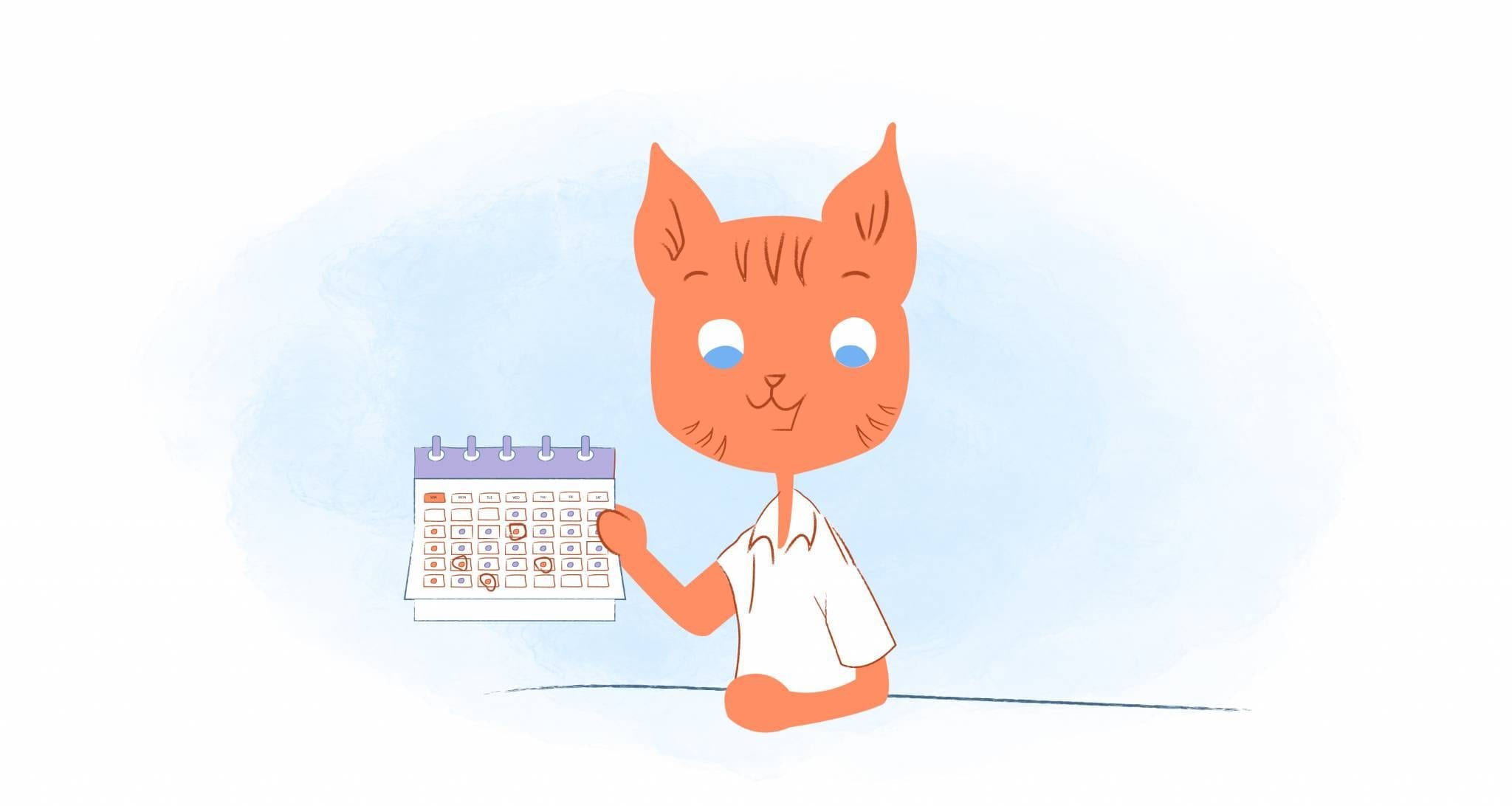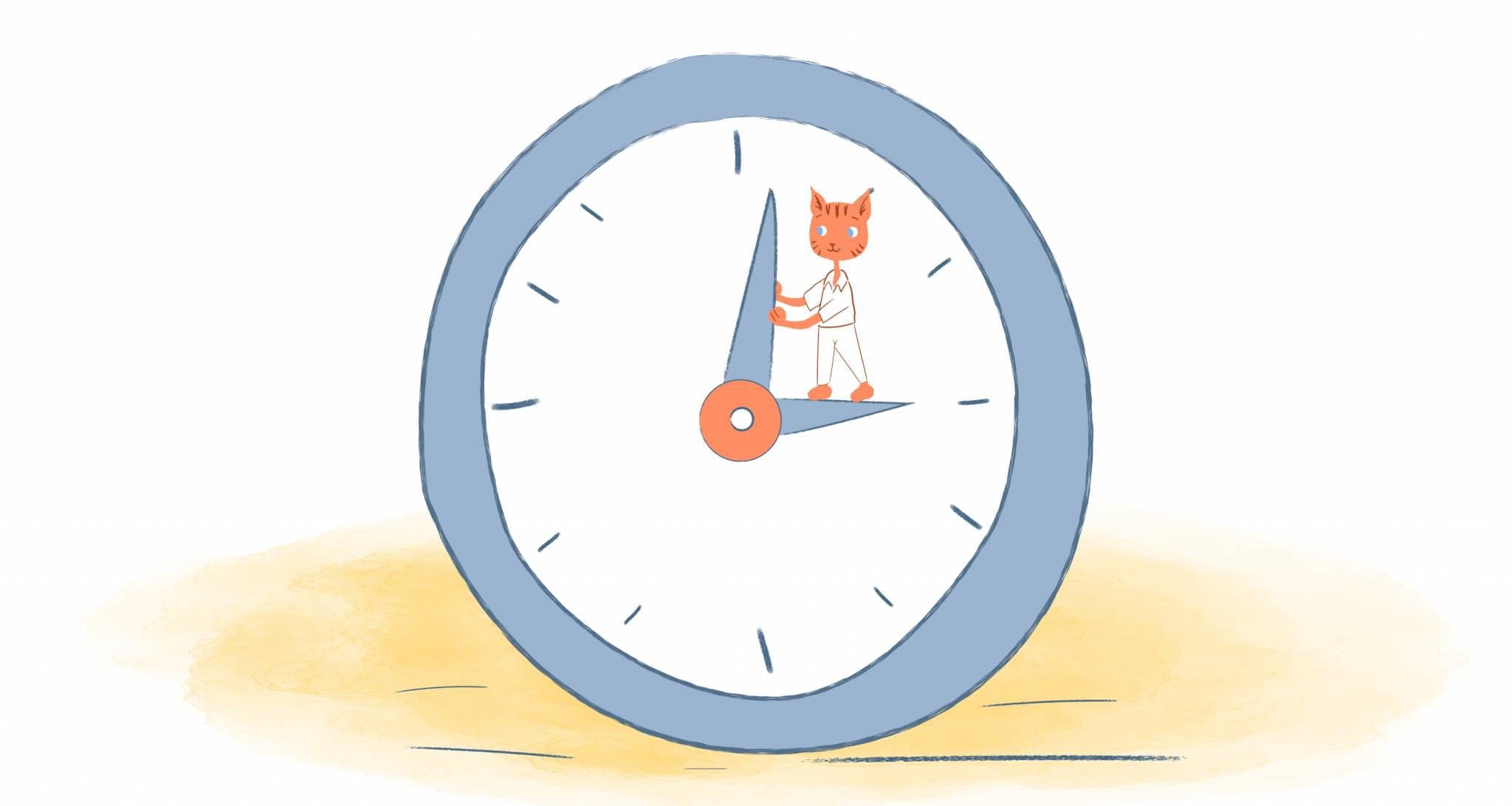

Don’t underestimate your calendar habits. They can definitely make or break your success. For example, running late when pitching your startup to investors pretty much ensures that they’ll find someone else. It’s time to supercharge your calendar.
So, how can you supercharge your calendars productivity to ensure that you’re successful? The first step is the use an awesome app. Calendar, for example, schedules meetings while eliminating those back-and-forth emails.
After you find the right app for you, it’s time to work on developing these seven habits to supercharge your calendar.
1. The cross calendar approach.
Want to stop procrastinating and start building better habits? Then try out the cross calendar approach. Since this technique was championed by Jerry Seinfeld, it’s also known as the “Seinfeld Strategy.”
According to Thomas Oppong, Founder at Alltopstartups, the cross calendar approach works like this:
- Get a big wall calendar that has a whole year on one page and hang it on a prominent wall. If a whole year calendar is too much to handle on your wall, stick to the monthly calendar. And get yourself a red marker.
- Choose your habit, starting today. To achieve consistency, choose a habit that’s really easy to start. Focus on an easy start and pick up the intensity as you progress.
- For each day you write even half a page of your next ebook, make even the smallest progress on your passion project, eat something healthy, read 2 pages of your favorite book, or do something insignificant to advance your meaningful work, you get to put a big red X over that day. You don’t have to join a gym yet if you want to exercise. Or change your entire diet at the very beginning. You can start with something small. Micro steps. Small wins will keep you going. That way you can actually do something.
- After a few days, you will have built a consistent chain. Just keep at it and the chain will grow longer every day. When you get a few weeks under your belt, it will feel good, especially if you stay consistent. Your only job is to not break the chain.
James Clear adds that there’s one caveat: “You need to pick a task that is meaningful enough to make a difference, but simple enough that you can get it done.” His advice is to “Choose tasks that are simple to maintain and capable of producing the outcome you want.”
If you choose the type of task Mr. Clear has suggested, you’ll maintain consistency. That’s the goal of this approach. Building consistent routines to develop habits.
Of course, some ingenious people have created apps based on the “Seinfeld Approach.” For iOS, try out the Don’t Break The Chain! app. Android users can download the Steaks app.
2. Start and end your day by reviewing your calendar.
Reading your daily calendar first thing in the morning is a simple and effective habit to develop. It only takes only a couple minutes each day. But, it will help you organize and manage your busy schedule.
I find it useful to note meetings and travel time in my daily calendar review to avoid running late.
You should also end your day by reviewing tomorrow’s calendar. It’s a habit that can get you into a proactive frame of mind. By reviewing the calendar the day before it reminds you of upcoming events, tasks you may overlooked, and lets you change plans if something comes up. Easy to reschedule a meeting the day before — rescheduling the day of — not so much.
3. Block out personal time.
I don’t know about you, but I need to block out time for me. This includes spending time with my family, working on a passion project, and exercising. If I don’t, my days end-up getting filled with “last minute” items.
Always make sure that you block out time on your calendar for lifestyle activities that are important to you. It will keep you healthy, happy, and motivated.
4. Write down supporting details in your calendar entries.
One of the easiest ways to increase productivity is to take notes of supporting information on your calendar. This includes phone numbers, full names, physical addresses, and travel notes. When you include this information, you have everything you need in one place.
As a result, you’re not toggling back-and-forth between apps, documents, emails, or texts. Sounds simple. But when you try this you will find it’s a real time-saver.
5. Color-code your calendar.
Color-coding my daily tasks allows me to quickly know the type of task and it’s priority. I’m also able to instantly scan through long to-do lists to determine which tasks I need tackle first. Color-coding my calendar helps me lump similar tasks together so I can stay focused while saving time.
6. Create repeating appointments.
Scheduling repeating appointments or events in your calendar ensures that won’t forget important dates. In a way, it’s like automating your calendar. Examples include:
- Birthday reminders. You can set a reminder a week in advance so that you can send a card and/or a gift to your nearest and dearest.
- Holiday reminders. Holidays are more enjoyable when you plan for them in advance. The reason? It reduces the stress of running around manically with no plan of action.
- “Big Meeting” Prep reminders. Do you have weekly, monthly, or quarterly meetings with executives or your team? Setting a reminder for these meetings will ensure that you’re completely prepared. And, it makes sure that you have more effective meetings.
7. Conduct weekly reviews.
David Allen writes in his book Gettings Thing Done, that the Weekly Review is a recurring activity that reviews the past, reminders, and more. According to Allen:
“From a practical standpoint, here is the three-part drill that [makes up the Weekly Review]: get clear, get current, and get creative.
- Getting clear will ensure all your collected stuff is processed.
- Getting current will ensure that all your orienting “maps” or lists are reviewed and up-to-date.
- The creative part happens to some degree automatically, as you get clear and current.”
The first benefit of conducting a weekly review is that it reminds you to review the past. For example, a weekly review reminds you to close out completed tasks or send follow-up emails to a client.
It also helps you plan for the future. For instance, you may have forgotten about that phone conference you scheduled several weeks ago. Weekly reviews prevent those type of surprises.
And, weekly reviews encourage that proactive mindset I mentioned earlier.











Angela Ruth
My name is Angela Ruth. I aim to help you learn how Calendar can help you manage your time, boost your productivity, and spend your days working on things that matter, both personally and professionally. Here's to improving all your calendars and becoming the person you are destined to become!